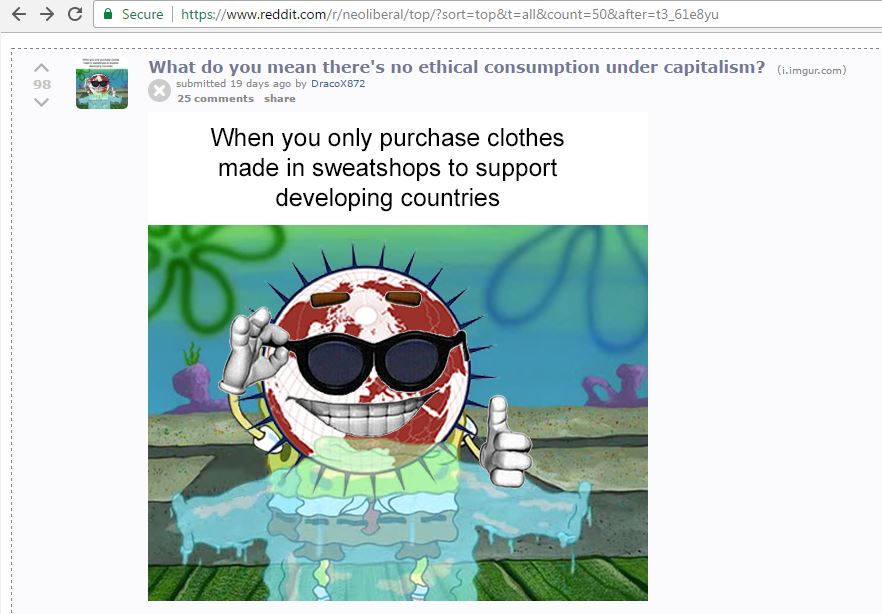R Neoliberal

In the realm of economic and political discourse, few ideologies have stirred as much debate and controversy as neoliberalism. Embraced by some as a beacon of free-market principles and criticized by others for exacerbating inequality and eroding social safety nets, neoliberalism is a multifaceted ideology that has shaped policies and perspectives across the globe. In this article, we delve into the essence of neoliberalism, exploring its ideals, implications, and the ongoing discourse surrounding its efficacy and ethical standing.
Neoliberalism, as an ideology, emerged in the latter half of the 20th century as a response to the perceived failures of Keynesian economics and the welfare state model. Rooted in classical liberal principles, neoliberalism advocates for limited government intervention in the economy, emphasizing deregulation, privatization, and free trade as pathways to economic growth and prosperity. At its core, neoliberalism places faith in the efficiency of markets, viewing competition as a driver of innovation and wealth creation.
Unveiling the Essence
One of the central tenets of neoliberalism is the belief in individualism and the sanctity of private property rights. Proponents argue that by allowing individuals and businesses to pursue their self-interest in the market, resources are allocated efficiently, leading to optimal outcomes for society as a whole. In this framework, the role of the state is primarily to safeguard property rights, enforce contracts, and provide a minimal framework for market operation, rather than actively intervening to redistribute wealth or regulate economic activity.
Critics of neoliberalism, however, point to a range of social and economic consequences that they argue undermine its purported benefits. One of the most prominent criticisms is the exacerbation of inequality. By prioritizing market mechanisms over social welfare programs, neoliberal policies have been accused of widening the gap between the rich and the poor, concentrating wealth in the hands of a few while leaving many behind. Critics argue that the deregulation of financial markets, in particular, has led to speculative bubbles, financial crises, and bailouts that disproportionately benefit the wealthy elite.
Moreover, neoliberalism has been criticized for its emphasis on austerity measures and fiscal discipline, which often result in cuts to essential public services such as healthcare, education, and social welfare programs. Critics argue that these austerity measures disproportionately affect marginalized communities, exacerbating social inequalities and perpetuating cycles of poverty.
Another contentious aspect of neoliberalism is its approach to globalization and free trade. While proponents argue that free trade promotes efficiency and economic growth by allowing countries to specialize in their comparative advantages, critics contend that it leads to job losses, wage stagnation, and the erosion of labor rights in developed countries, while exploiting cheap labor and natural resources in the developing world.
Implications, and Controversies
Furthermore, neoliberalism has been accused of undermining democracy by prioritizing the interests of corporations and wealthy elites over those of the general populace. The revolving door between government and corporate sectors, coupled with the influence of money in politics, has led to regulatory capture and a loss of public trust in democratic institutions.
Despite these criticisms, neoliberalism continues to shape economic policies and discourse around the world. Its proponents argue that while it may not be without flaws, neoliberalism remains the most effective framework for promoting economic growth, innovation, and prosperity. They point to success stories such as the rapid economic development of East Asian countries like South Korea and Taiwan as evidence of the benefits of neoliberal policies.
In response to the challenges posed by neoliberalism, alternative economic paradigms such as democratic socialism and green economics have gained traction in recent years. These ideologies advocate for a more active role of the state in regulating markets, redistributing wealth, and addressing social and environmental concerns.
Conclusion
Neoliberalism is a complex and contested ideology that continues to shape economic policies and debates in the 21st century. While its emphasis on free markets and individual freedoms has led to unprecedented economic growth and globalization, it has also generated social inequalities, environmental degradation, and political instability. As we navigate the challenges of the modern world, it is imperative to critically evaluate the ideals and implications of neoliberalism, striving to strike a balance between economic efficiency and social justice in pursuit of a more equitable and sustainable future.





